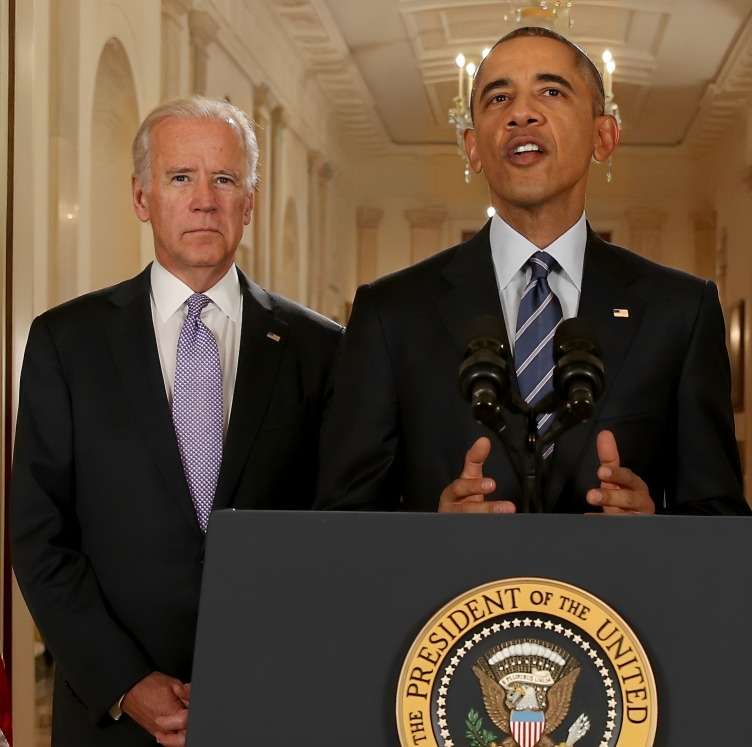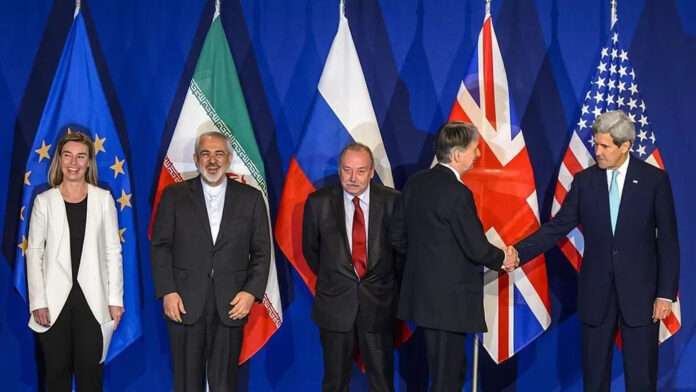While attempting to gauge the strategic impact of the Iran nuclear deal, one is haunted by the dilemma about American as well as Iranian intent behind evolving the agreement in the form as it stand now. Is it a part of prior greater strategic understanding reached between Iran and the US, ultimately leading to gradually assigning Iran a key strategic role in the Gulf? If so, does it mean that has the US led bloc tacitly accepted the so far abhorred Iranian practices in statecraft as legitimate norms of diplomacy? OR Is it only a technical endeavour to plug in a proliferation attempt by a non-nuclear weapon state member of the NPT? If so, will Iran continue to carry the baggage of a pariah state minus the bomb phobia?
There are equally convincing arguments supporting either of the propositions. Therefore, it is necessary to evaluate the impact while keeping in mind both these streams. If the subsequent events are to be governed by the first assumption then implementation appraisals shall be subjective and perceptional— more of looking the other side. However, if matters move as per the second hypothesis; then again though appraisals shall be perceptional, but this time, biased with an objective to pin-down Iran irrespective of its implementation score. Technical parameters and performance evaluation criteria have enough elasticity embedded in the Joint Comprehensive Plan of Action (JCPOA) to go the either way.
Even if all actors are presumed to act in good faith, which is not the likely case, the treaty execution is likely to bog down into glitches. If the utopian feat of implementation of accord, to the satisfaction of both sides, is accomplished, Iran will not only be reintegrated into the global system, it will also contest the long-standing partnerships between ‘moderate’ Arab states and the Western powers. It will be able to enhance its political clout in the region and will have enhanced leverage to play a complex stabilizing-destabilizing role—depending upon the prism through which its conduct is judged. Under these circumstance Iran is poised to gain and strengthen its national power potential. There will be status enhancing changes in Iran’s regional and international standing. Iran will continue to positively evolve on both fronts – be it the extent of global integration or its regional influence.
The Iranian Foreign Minister recently stated, “The purview of our [Iran-US] constructive engagement extends far beyond nuclear negotiations.” The reality is that Iran has its stakes in almost all issues in the Middle East. These include Iraq, Syria, Lebanon, Yemen, nuclear weapons proliferation, the war on terrorism, energy security, and the Arab-Israeli conflict. Washington’s understanding with Tehran would not solve all Middle Eastern problems but would significantly reduce the underlying tensions.
The nuclear deal has the potential to fundamentally alter the strategic landscape in the Middle East and South Asia by initiating a new security paradigm. Iran may be increasingly re-integrated and the partnership between Western powers and ‘moderate’ Arab states may face serious challenges. This does not however mean that the US would abandon Saudi Arabia and the Gulf countries. At best the US policy would revert back to the ‘twin pillars’ of Iran and Saudi Arabia/GCC to protect Western interests in the Persian Gulf and the broader Middle East North Africa Region.
In the context of Afghanistan, Tehran has been engaging the Taliban and meeting their delegates; therefore the possibility of Iranian participation in the Afghan peace process, at a later stage, cannot be considered too far-fetched. India was Iran’s partners in Afghanistan in the 1990s; together they contributed towards instability of Afghanistan by nurturing erstwhile northern alliance and strengthening intra-Afghan ethnic divide. As of now, India is feeling isolated in Afghanistan with the emergence of a new axis for peace in Afghanistan, comprising Afghanistan, China, and Pakistan. Though India would like a replication of the Iran’s role of 1990s, but Iran has learnt its lessons and its recent engagements with Taliban indicate that Iran is likely to follow a different trajectory, and this time Iran would prefer to harmonize its effort with Pakistan.

Pakistan stands to gain if the nuclear deal goes through smooth implementation; and wishes Iran God’s speed in this regard. With the sanctions gone, Pakistan could immensely benefit from economic relationship between the two countries. Both countries should work together to sign a free trade agreement (FTA). There is a need to dispel the impression that Gwadar and Chabahar ports are mutually exclusive; a way forward should be worked out for making these ports function in a mutually supportive way. If the issue is approached with an open mind, workable solutions could be found out. It will be in the interest of Iran to strive for a berth in China Pakistan Economic Corridor (CPEC), and One Belt One Road (OBOR) initiatives rather than following an isolationist policy with regard to Chabahar port.
Ever since Iran and international powers inked a nuclear deal, India has been vigorously debating the meaning of the agreement for South Asia. Indian academia views the deal as a major breakthrough. Indian assessment has it that the agreement gives Iran unprecedented opportunity to restructure its economy and leverage its newfound situation to confront challenges of violent extremism in the Middle East; and that it also gives the United States space and time to fashion a new balance of power in the region, thereby creating a new geopolitical order in the Middle East. This assessment is fairly accurate. In the last decade, most bilateral discussions between Iran and India had nosedived to more of talk than action. Iran matters to India not only for cheaper energy but, increasingly, as a strategic partner in Afghanistan given the shared goal of limiting the Taliban’s role. Moreover India envisages to limit Pakistan’s influence in Afghanistan after the Americans exit. Its investment in Chabahar port shall mean placing Indian assets (workers, equipment, etc.) on the ground in Iran. Under the garb of workers and technicians, India is poised to place intelligence operatives to augment its disruptive effort in Baluchistan and beyond.
India had forsaken Iran during difficult times, it voted against Iran in the IAEA, walked away from IPI project and joined the American bandwagon of sanctions by cutting its oil import from Iran. In contrast Pakistan voted in favour of Iran in the IAEA, remained steadfast in IP project and vehemently opposed any military solution to Iran’s nuclear issue. And Iran is not known for short memory.
Pakistan’s ability of maintaining a delicate balance in its relations with Iran and Saudi Arabia during Yemen crisis and its efforts for reconciliation based solution in unison with Turkey are expected to now pay back dividends and Pakistan is likely to have better leverage than India over Iran as well as Saudi Arabia in the context of Afghanistan and other regional issues.
Pakistan should make an effort to formally induct Iran into Murree peace process so that it becomes a stakeholder in the political process. At the same time, Iran needs to do its part to dispel the public perception in Pakistan that it is not a party to the sectarian problem of Pakistan and that it is not involved in stalling the development of Gwadar port project. It will be worthwhile for Pakistan to support Iran’s induction into CPEC projects. Pakistan should complete the IP project and not fall in the trap of clubbing it with the revivals of IPI. If India seeks to revive the project, and most probably it would, then IPI should be negotiated fresh and independent of IP project.
While implementation saga will take quite some time to unfold, all may not proceed the way it appears now; Pakistan should follow a flexible policy to cater for emerging scenario.




